I hope you enjoy reading this blog post.
If you want my team help you Get More Traffic More Customers More Revenue With Digital Marketing, just book a call
If you want my team help you Get More Traffic More Customers More Revenue With Digital Marketing, just book a call
Last updated on 31 December, 2023 by Ravi Gupta
Summary: Affiliate marketing is a promotional effort against a certain commission that leverages the online popularity and influence of a brand or individual in a specific niche to generate leads and sales of third-party products or services.
When it comes to expanding your business, affiliate marketing is far more than just a buzzword. It's a win-win situation for business owners and affiliate marketers, helping both sides perform well online.
Affiliates use their online visibility and marketing skills to direct customers to e-stores that are trying to generate more sales for their products or services.
The marketing approach continues to revolutionise the advertising landscape of this age, proving to be a vital tool for businesses in today's connected world due to its adaptability, scalability, and trackable performance.
The affiliate marketing market has been projected to be valued at around $17 billion in 2019. This is a rise from 2016's $13 billion.
According to a 2016 survey carried out by Rakuten and Forrester Research, 90% of online retailers and advertisers said that affiliate marketing was crucial to their overall marketing strategy.
But why are they doing it?
Just imagine! You have a fantastic product or service that you believe can change people's lives. It's innovative, high-quality, and solves a real problem.
But here's the catch: how do you reach your target audience in a crowded digital marketplace?
This is where affiliate marketing steps in like a superhero, ready to save the day.
So, what is an affiliate program? Imagine a blog that genuinely believes in what you have to offer. These blogs, known as affiliates, are masters of online marketing, with their own loyal followers, engaging content, and persuasive skills.
They have spent years building trust and credibility in their respective niches. And now, they can become your secret weapon for reaching your desired customer base.
Similarly, if you are an online publisher in a particular category, you can be an affiliate too.
And in case you are wondering, what exactly is affiliate marketing? Or how to do it? This guide will be your best companion.
If you seek a side hustle or an opportunity to monetize your blog with an additional stream of income but don't want to come up with your own sales line, well, affiliate marketing is your best bet.
Simply put, affiliate marketing helps you earn a fee for every sale that is linked to your endorsement of products or services to your audience.
This method of online promotion is similar to the conventional practice of rewarding salespeople with a commission on products sold.
The same way a web publisher receives a commission in exchange for referring visitors to a brand's site.
To be involved in affiliate marketing, affiliates can either work directly with brands or join an affiliate marketing network of various e-commerce stores.
The Amazon Associates Affiliate Programme is one of the best-known affiliate marketing programs so far and a great place to start if you're new to affiliate marketing.
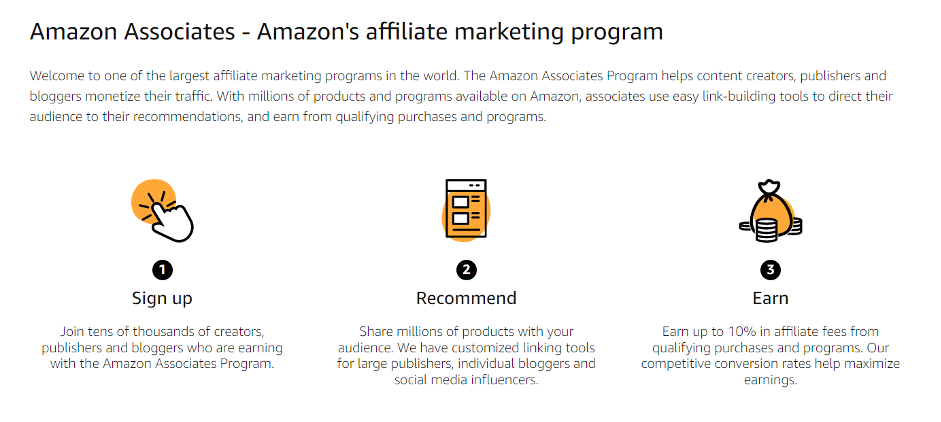
All you need to do is sign up as a creator, publisher, or blogger, obtain the unique link, and paste it anywhere on your online platform where it is viewable and clickable. In the end, you can start earning up to 10% affiliate commission, which is indeed 10% (or less) of the value of the Amazon product.
The Etsy Affiliate Programme and the eBay Partner Network are two further examples that have found widespread use.
Similarly, one of the most well-known affiliate networks in web hosting is Bluehost. Online publishers, bloggers, and content creators throughout the globe collaborate with these brands.

The affiliate program offers publishers and marketers the opportunity to earn Rs 5000 for each qualified sign-up from an eligible candidate.
However, these are just examples of a few affiliate marketing programs and how they look in the real world.
But it’s just an outline; there’s still a lot more behind the doors of affiliate marketing. To begin with-
Affiliate marketing is an effective marketing approach because it pools the skills of many people to promote a product and then rewards those who helped by giving them a portion of the earnings.
Following are the three main parties involved in the overall cycle of affiliates:
Let's explore the intricate triangle formed by these three entities that makes affiliate marketing work:
Any person or business having a product to sell will be described as a vendor, producer, merchant, or retailer. He or she may be selling any good or service, ranging from home goods to digital products.
While the seller (or brand) is not required to take part in any promotional activities.
But, if they wish, they can still serve as the affiliate programme's advertiser or assist the affiliate, at least through numerous promotional mediums.
However, the objective of affiliate marketing can vary from one business to another.
It's possible that the vendor is a drop-shipping retailer looking to expand their customer base through paid affiliate promotion. A seller could also be a software-as-a-service firm that uses affiliates to boost sales of its advertising platform.
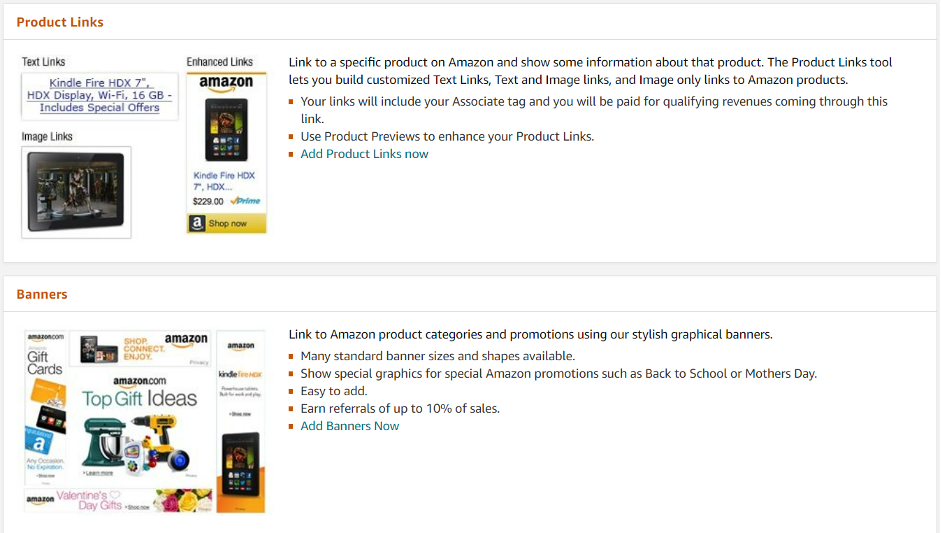
As you can see in the image above, Amazon Associates receives promotional tools like image links, banner ads, and simple links to promote affiliate sales.
Affiliates can be anyone from individuals to large corporations that produce content promoting the seller's offering.
In simple terms, the affiliate's goal in promoting a product is to get customers to believe in the product's worth and ultimately make a purchase.
As an affiliate, you may also want to somehow persuade a customer to click on your link and capture a sale. Affiliates get a commission on sales made by consumers who click on their links.
Affiliate marketers typically target a narrow demographic and tailor their content accordingly.
This helps the affiliate establish a distinct brand that speaks to the type of customer that is most likely to take advantage of the promotion.

As you can see, the screenshot above is from a publisher website, Good Housekeeping, that sells household gadgets and products.
The website reviews and recommends products on its site and attaches an affiliate with each recommendation that the customer can purchase products through.

Apart from banner ads and call-to-action buttons, affiliate links can be placed somewhere in between the body section or within the content, as given above in one of the articles by Good Housekeeping.
Of course, sales are necessary for the affiliate network to be successful, which means you will need customers. Affiliates promote products or services to customers via the appropriate mediums, such as YouTube videos or blogs.
If the customer believes the product or service is of good value, they will click the affiliate's marketing link and complete their purchase on the seller's site.
This purchase then determines the portion of commission paid to the affiliate who brought the customer onboard.
In other words, if a customer purchases just a single product or a low-priced subscription plan via an affiliate’s referral link, a small commission will be created.
At the same time, if the customer purchases multiple products in one-time shopping or buys a subscription plan of a service at a high price via an affiliate’s referral link, a big commission will be created.
You've interacted with someone's affiliate marketing campaign if you've used a coupon code from a podcast or bought anything through a link on a review website.
Affiliate marketing is carried out in different styles. It isn't just limited to link placement. As given below, there are different types of affiliate marketing.
When an affiliate does not have a presence in any niche or a position of power in the promotional area in which they advertise the product, they take part in "unattached" affiliate marketing.
Such affiliate marketers run AdWords or Facebook ads to begin promoting their products.
However, such affiliates don’t operate in any specific niches, but they may start promoting a product through the digital medium, which represents unattached affiliate marketing.
Affiliate marketing that offers recurring payments as an income stream is the best example here.
If you have an affiliate link for a service that seeks to sign up via affiliate link, you will earn a commission each and every month forever, or until the customer is an active member of the subscription.
Software like website hosting, search engine optimisation (SEO) tools, business applications, and so on, all represent the types of companies that rely on membership or subscription models. Commission rates typically range from 10% to 30% per month, and sometimes more. A single sale or sign-up is sometimes enough to generate recurring revenue.
Many newbies can be found taking part in this affiliate marketing. In related affiliate marketing, you partner with companies that have a little similarity to the target market for your product.
That's what gives it a "related" theme. They can advertise the external links in banners and text form if they feel there is a demand for an affiliate product on the platforms.
Affiliate blogs often feature products that they haven’t yet tried and examined but that are only barely related to the promotional space.
This could sometimes lead to a decline in viewer confidence. Since they are only marketing-related and no value is served along the way, fewer people are likely to use that link to create affiliate sales.
Membership-based advertising firms, both traditional and digital, represent this form of marketing. Affiliate marketing is renowned for the popularity of "pyramid schemes."
Affiliate marketing aims to build more connections, whereas each person involved in the connection receives a particular commission based on their position in the pyramid.
Such affiliate marketing typically works for premium products that guarantee a great income for each person involved in the network or multi-level marketing.
It is important to note that involved affiliate marketing is not the same as unattached affiliate marketing.
In essence, affiliate marketing does not solely focus on achieving a predetermined quantity of clicks through your affiliate link.
If an affiliate uses a product and ends up falling in love with its performance and profit potential, they will do all in their power to get it shown and promoted to a larger audience.
In simple words, this is the kind of product that industry experts are more likely to promote wholeheartedly to their audience.
How do affiliate marketers get paid, though? We are aware of how they make money. Affiliate connections do bring in some side cash flow, but how exactly is that revenue tallied? We can break it down like this.
Affiliate marketers earnings are determined by PPC, PPL, and PPS. Let’s take a look!
In pay-per-click marketing, ads are embedded on the page as part of pay-per-click marketing. Customers may access more information about these ads by clicking on them.
Similarly, if any of them follows one of those links and makes a purchase, the seller must repay the affiliate marketer with added rewards. The amount is often pre-specified in pay-per-click affiliates terms and conditions.
Pay per lead is an acronym used in this context. The goal of PPL marketing is to get consumers interested in a brand's offerings with the intent of making a purchase.
This could involve anything from signing up for a newsletter to obtaining a brand manual to enrolling in a webinar. PPL is another revenue model for affiliate marketers.
Affiliates get compensated more when they register higher conversion rates for the seller. Put another way, PPL is quite close to PPC. The main distinction is that leads, not clicks, are monetized.
Pay-per-sale is the last option. Marketers that participate in affiliate programmes using pay-per-sale (PPS) models will earn a commission based on the final selling price of products promoted through their links.
It's not the clicks or leads themselves that bring in money here. Instead, affiliate marketers get paid commissions on purchases made by their individual affiliates.
Any industry that talks more in-depth online and has a great influence on people through digital galleries can be a big hit with affiliate marketing.
The technology industry is a lucrative sector for affiliate marketing. With the constant release of new gadgets, software, and digital products, there is a high demand for affiliates who can effectively promote and recommend these products. Technology enthusiasts and early adopters often turn to reviews and recommendations before making a purchase, making it an excellent niche for affiliates to provide valuable insights and generate sales.
The wealth-building industry encompasses various niches such as personal finance, investing, trading, and entrepreneurship.
Affiliates in this industry can promote financial education courses, investment platforms, books, and other resources that help individuals improve their financial situation.
The potential for high commissions and the evergreen nature of wealth-building topics make this industry attractive for affiliate marketers.
The health and fitness industry is a vast and ever-growing market. With the increasing focus on personal well-being, there is a strong demand for fitness equipment, workout programmes, diet plans, supplements, and more.
Affiliate marketers can target specific niches within health and fitness, such as weight loss, muscle building, yoga, or healthy cooking, and earn commissions by promoting relevant products and services.
The insurance industry is known for offering competitive affiliate programmes. Affiliates can partner with insurance companies and promote various types of insurance policies, including auto, home, life, health, and travel insurance.
Many insurance companies offer attractive commission rates for successful referrals, making it a potentially profitable niche for affiliate marketers.
The travel industry is a popular choice for affiliate marketers due to its broad appeal and high-value purchases. Affiliates can promote flights, hotels, vacation packages, car rentals, travel insurance, and travel accessories.
They can also focus on specific niches within travel, such as luxury travel, adventure tourism, family vacations, or budget travel, catering to different target audiences and their unique preferences.
While not an industry in itself, blogging has become a profitable niche for affiliate marketers. Bloggers can create content on various topics and monetize their blogs by partnering with affiliate programmes related to their niche.
A blog is a marketing tool itself, but surprisingly, most bloggers are finding a big fortune by promoting and selling products on blogs that pay astounding figures.
Some of the best products are web hosting, domains, and CMS (content management system) plugins.
To be successful in affiliate marketing, you must first understand what makes a good niche.
So, these are the first things you need to do properly:
The problem with trying to keep up with the newest trends is that they often fade as quickly as they gain popularity.
For long-term success and large profits in your affiliate marketing firm, the most important thing you can do is research specific niches that are evergreen.
You can run an in-depth examination of the competitive landscape, conduct research into the affiliate programmes accessible in your industry, and develop a long-term content strategy.
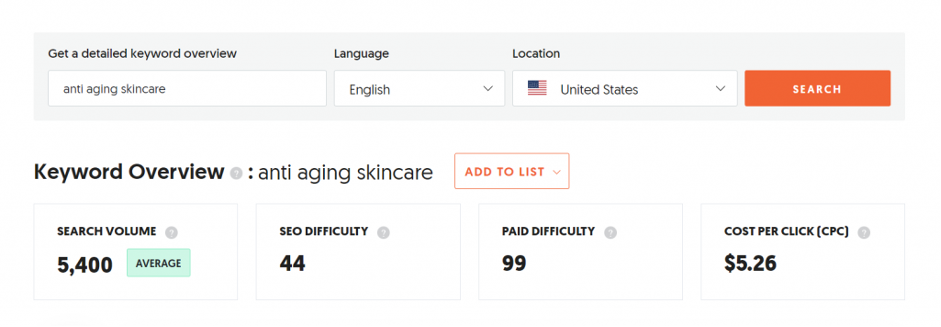
You can even take help from online tools such as Google Trends or Ubersuggest, as shown above.
Simply put, use the keyword you are intending to sell products for and obtain an overview of the keyword’s potential in the big picture. Pay attention to the following terms:
Search Volume: A higher search volume for the given keyword indicates more buyers are interested in shopping for the product.
SEO Difficulty: A lower or average SEO difficulty indicates that organically, it would be easier to promote an affiliate blog online.
Paid Difficulty: A higher paid difficulty indicates that most affiliates are currently heavily using paid campaigns to bring in affiliate sales.
Cost per click: Here, CPC is irrelevant for an affiliate marketer as it tends to vary from one product to another.
When it comes to affiliate marketing, social media is undoubtedly a great place to begin. But if you seek more opportunities, blog posts offer a greater number of opportunities to organically add affiliate links and to optimise these links for search engine results.
Now that you have a platform and a targeted audience in a particular niche or sector, join an affiliate program that you find best suits your niche. Before you choose, make sure you first identify the legitimacy of their refer-and-earn program. Hereafter, you can evaluate their commission rate. If it sounds good, go ahead and join.
Once you finalize the platform, consider strategic link placements. Pick up affiliate links from the seller. Put it into the content, but in such a way that it grabs more clicks and the viewer’s attention.
There’s nothing like direct selling; first comes value creation. So, before you head towards a money-making mindset, create value through your blog and share informative content. Once you have a decent audience interested in your blog and the content, start promoting affiliate products.
You will surely want to keep an eagle eye on your top-performing affiliate products or campaigns and your lower-performing names. So make sure you keep monitoring affiliate campaigns through affiliates’ dedicated dashboards.
What is an affiliate? Affiliate marketing is a powerful marketing strategy where individuals, known as affiliates, earn commissions by promoting products or services offered by other companies. Through various marketing channels such as websites, blogs, social media, or email lists, you share compelling content and recommendations to engage your audience. By embedding unique tracking links provided by affiliate programmes, you can trace the traffic and sales generated from your promotions, which ultimately determine your commission.
I'm Ravi Gupta, the founder of ravi-gupta.com. Here, I teach beginners to Get More Traffic More Customers More Revenue With Digital Marketing Join Our Newsletter
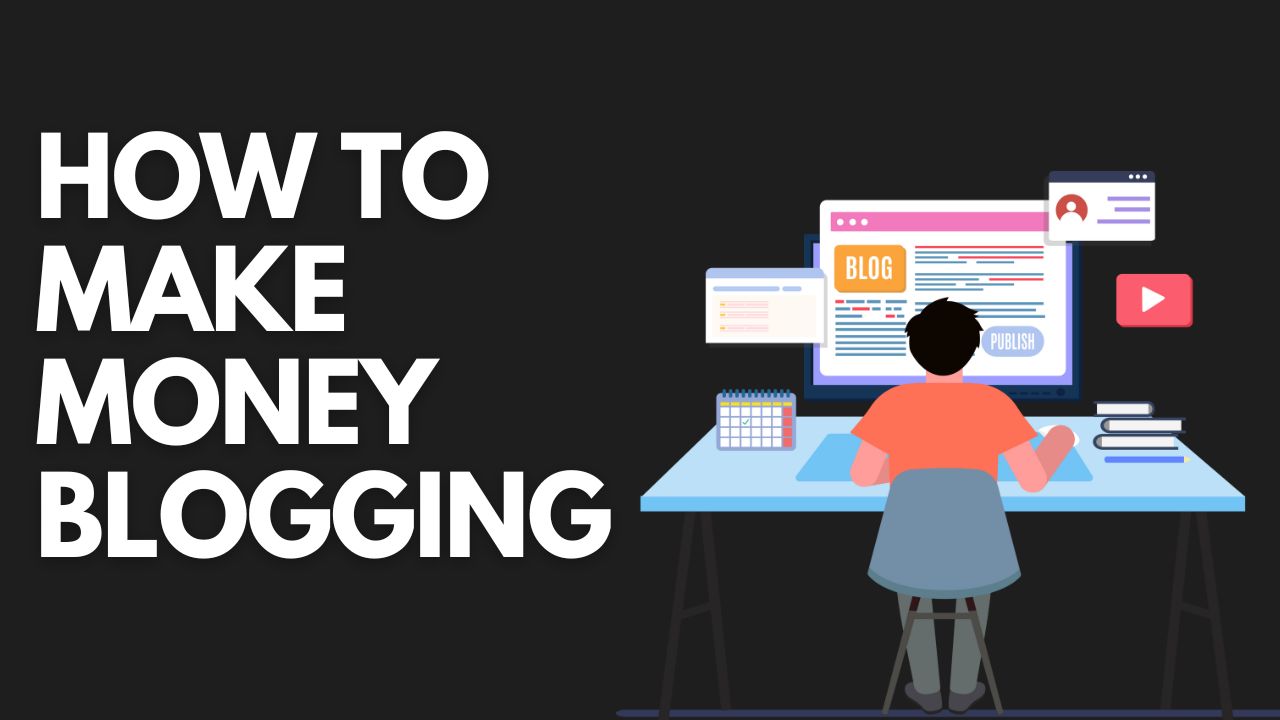
How To Make Money Blogging (Your Passive Income Guide for 2024)
Published on 31 December, 2023

Keyword Research for SEO – The Ultimate Guide For Beginners (2024)
Published on 31 December, 2023
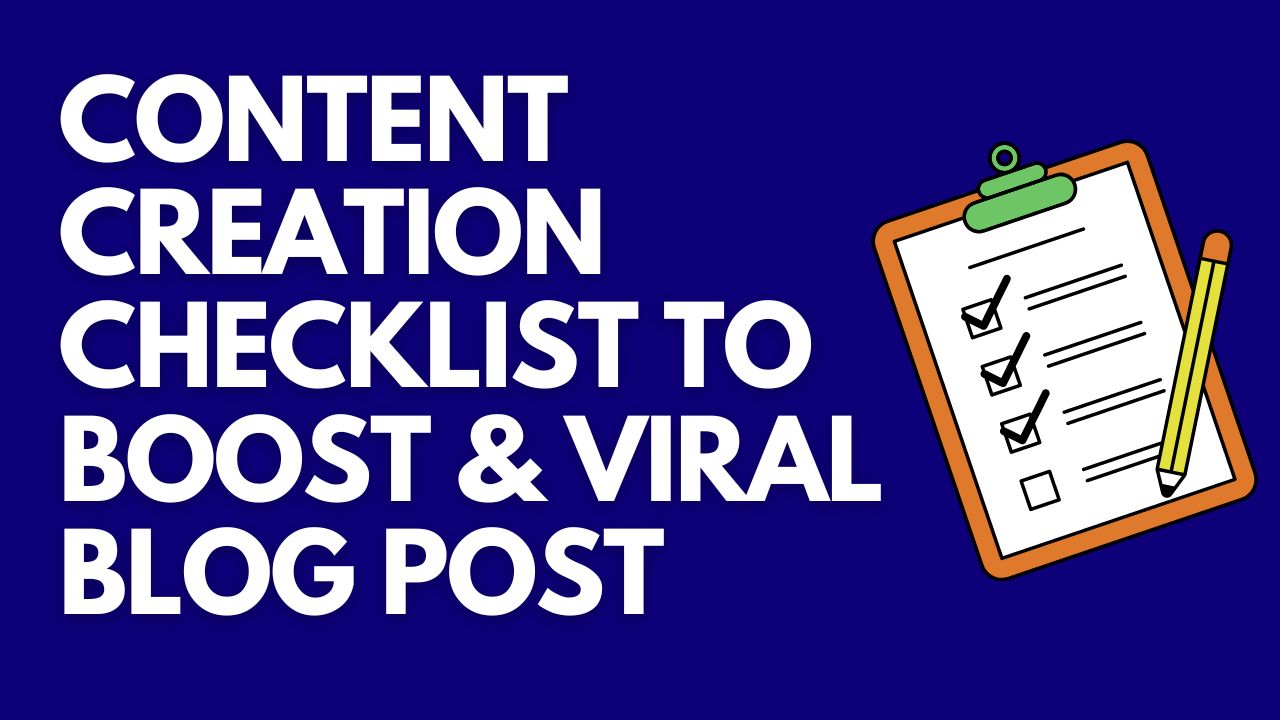
Content Creation Checklist To Boost & Viral Blog Post 2024
Published on 14 December, 2023
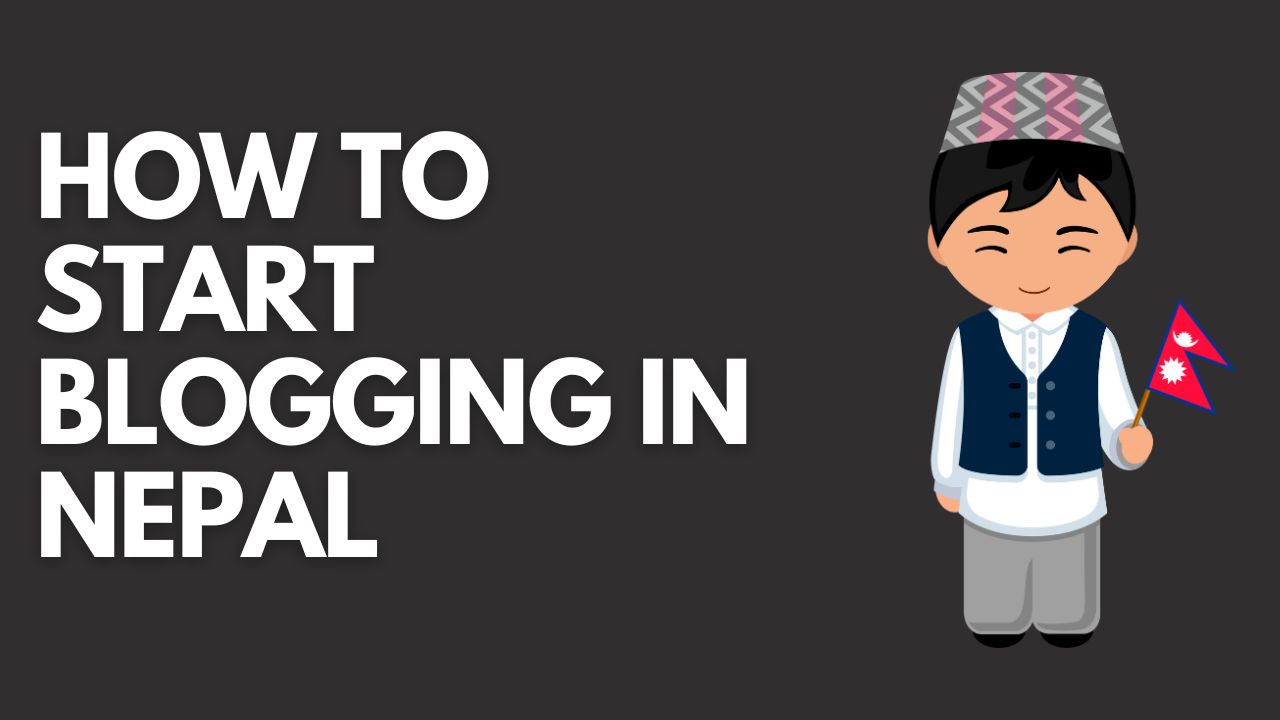
How To Start Blogging in Nepal
Published on 14 December, 2023

How To Become A Blogger In Nigeria 2024
Published on 14 December, 2023

How To Become A Blogger 2024 Few Simple Steps
Published on 13 December, 2023
Get FREE access to our Book - 299+ Way make money online without investment
Get The BookJun 6, 2019 at 9:48 pm
I have installed and activated the plug-in, put it in the side bar and logged in to FB (choosing my nominated page) however none of the Review & Slider Options came up, only the Facebook details, Title, Pagination, Characters before ‘ read more’ link, Widget Width etc.
ReplyThanks for choosing to leave a comment. Please keep in mind that all comments are moderated according to our comment policy, and your email address will NOT be published. Please Do NOT use keywords in the name field. Let's have a personal and meaningful conversation.
Save my name, email, and website in this browser for the next time I comment. Notify me of followup comments via e-mail. You can also subscribe without commenting. Submit CommentJun 6, 2019 at 9:48 pm
I have installed and activated the plug-in, put it in the side bar and logged in to FB (choosing my nominated page) however none of the Review & Slider Options came up, only the Facebook details, Title, Pagination, Characters before ‘ read more’ link, Widget Width etc.
ReplyThanks for choosing to leave a comment. Please keep in mind that all comments are moderated according to our comment policy, and your email address will NOT be published. Please Do NOT use keywords in the name field. Let's have a personal and meaningful conversation.
Save my name, email, and website in this browser for the next time I comment. Notify me of followup comments via e-mail. You can also subscribe without commenting. Submit CommentMay 21, 2018 at 7:53 am
Today I learned new technic from this Blog. Thanks.
ReplyThanks for choosing to leave a comment. Please keep in mind that all comments are moderated according to our comment policy, and your email address will NOT be published. Please Do NOT use keywords in the name field. Let's have a personal and meaningful conversation.
Save my name, email, and website in this browser for the next time I comment. Notify me of followup comments via e-mail. You can also subscribe without commenting. Submit CommentThanks for choosing to leave a comment. Please keep in mind that all comments are moderated according to our comment policy, and your email address will NOT be published. Please Do NOT use keywords in the name field. Let's have a personal and meaningful conversation.
Save my name, email, and website in this browser for the next time I comment. Notify me of followup comments via e-mail. You can also subscribe without commenting. Submit Comment© 2018-2024 Ravi-Gupta.com - All rights reserved